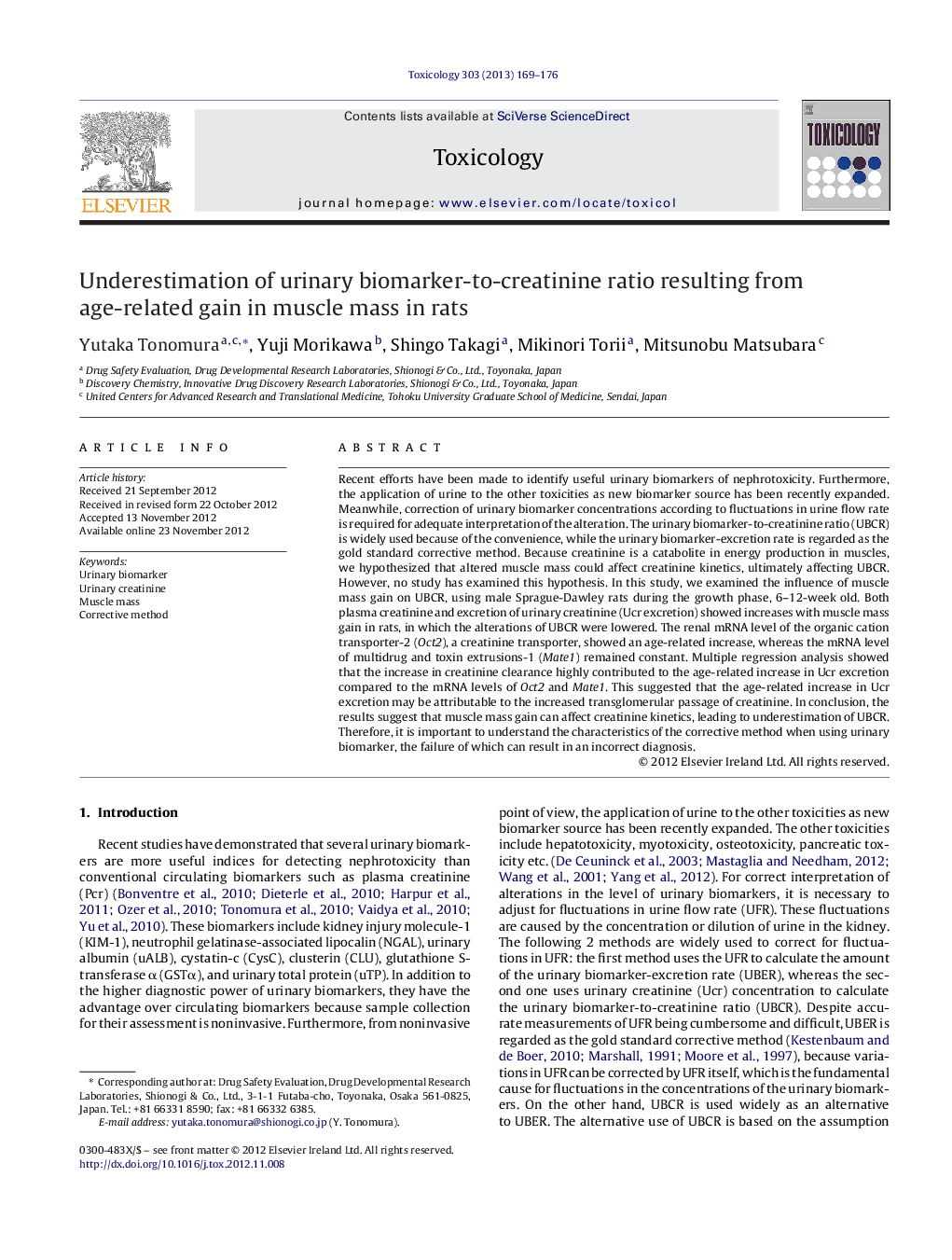| کد مقاله | کد نشریه | سال انتشار | مقاله انگلیسی | نسخه تمام متن |
|---|---|---|---|---|
| 5859501 | 1562353 | 2013 | 8 صفحه PDF | دانلود رایگان |
Recent efforts have been made to identify useful urinary biomarkers of nephrotoxicity. Furthermore, the application of urine to the other toxicities as new biomarker source has been recently expanded. Meanwhile, correction of urinary biomarker concentrations according to fluctuations in urine flow rate is required for adequate interpretation of the alteration. The urinary biomarker-to-creatinine ratio (UBCR) is widely used because of the convenience, while the urinary biomarker-excretion rate is regarded as the gold standard corrective method. Because creatinine is a catabolite in energy production in muscles, we hypothesized that altered muscle mass could affect creatinine kinetics, ultimately affecting UBCR. However, no study has examined this hypothesis. In this study, we examined the influence of muscle mass gain on UBCR, using male Sprague-Dawley rats during the growth phase, 6-12-week old. Both plasma creatinine and excretion of urinary creatinine (Ucr excretion) showed increases with muscle mass gain in rats, in which the alterations of UBCR were lowered. The renal mRNA level of the organic cation transporter-2 (Oct2), a creatinine transporter, showed an age-related increase, whereas the mRNA level of multidrug and toxin extrusions-1 (Mate1) remained constant. Multiple regression analysis showed that the increase in creatinine clearance highly contributed to the age-related increase in Ucr excretion compared to the mRNA levels of Oct2 and Mate1. This suggested that the age-related increase in Ucr excretion may be attributable to the increased transglomerular passage of creatinine. In conclusion, the results suggest that muscle mass gain can affect creatinine kinetics, leading to underestimation of UBCR. Therefore, it is important to understand the characteristics of the corrective method when using urinary biomarker, the failure of which can result in an incorrect diagnosis.
Journal: Toxicology - Volume 303, 7 January 2013, Pages 169-176
